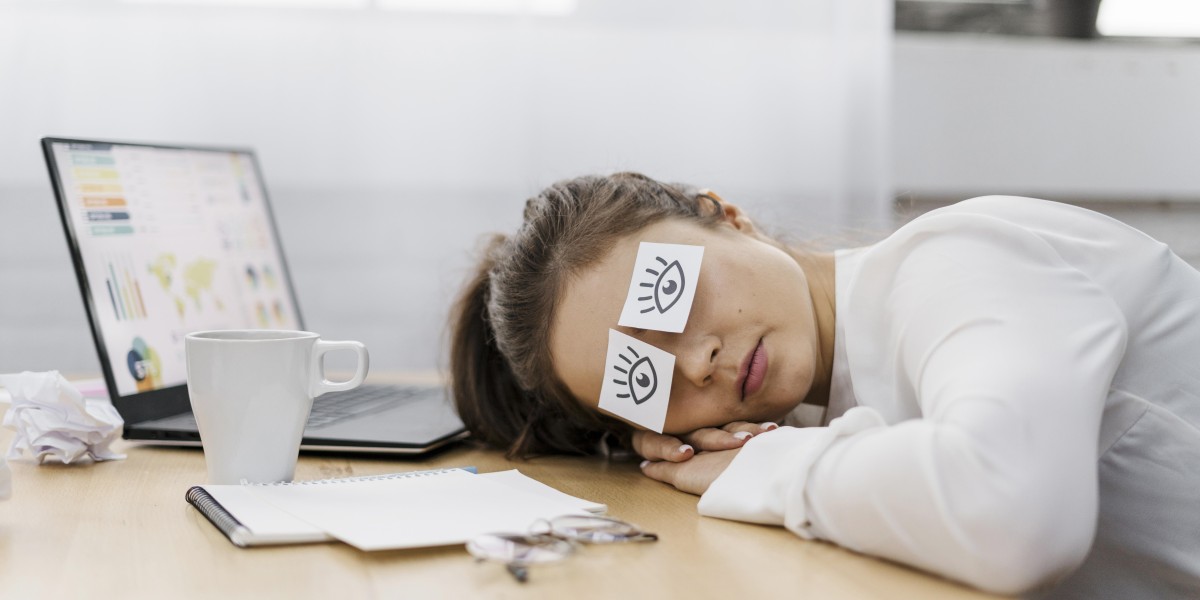How Excessive Sleepiness Affects Your Mental Health
Introduction
Have you ever felt excessively sleepy during the day, even after a full night’s rest? You might be dealing with hypersomnia, the opposite of insomnia. While we all know that sleep is essential for our well-being, what happens when it goes too far? Excessive sleepiness can lead to much more than just fatigue. In fact, it can negatively impact your mental health, making everyday tasks feel like monumental challenges. In this blog, we will explore the connection between hypersomnia and mental health, highlighting how it affects cognitive function, anxiety, depression, and overall emotional well-being. Let’s dive into how excessive sleep can affect your mind and what you can do about it.
1. What Is Hypersomnia?
Hypersomnia is more than just a feeling of being tired. It refers to excessive sleepiness during the day, despite having had enough sleep the night before. Unlike insomnia, where individuals struggle to sleep, hypersomnia causes individuals to sleep too much or feel extremely sleepy during the day.
Symptoms of hypersomnia include:
Difficulty waking up, even after a full night’s sleep
Feeling tired or drowsy throughout the day
Falling asleep unexpectedly during activities like driving, watching TV, or even working
Causes of hypersomnia can vary and include:
Sleep disorders, such as narcolepsy or sleep apnea
Depression or other mental health conditions
Chronic fatigue syndrome or other health problems
Medications or substances that affect sleep patterns
Understanding the root cause of hypersomnia is essential for determining the best course of action to improve your health.
2. The Link Between Excessive Sleep and Mental Health
Excessive sleep can have a profound effect on your mental health. It’s not just about feeling tired—it’s about the impact that constant drowsiness has on your overall emotional and cognitive well-being.
When you experience hypersomnia, your brain's ability to function at its best is compromised. Mental clarity diminishes, leading to mood swings, irritability, and a lack of motivation. Additionally, chronic sleepiness can interfere with the brain’s capacity to handle stress, making anxiety and depression worse.
Why does this happen?
Sleep is crucial for brain function. During sleep, our brain processes information and repairs itself. When excessive sleep interferes with normal cycles, it disrupts your emotional regulation, which can lead to feelings of sadness or frustration. People with hypersomnia often experience a "foggy" mind, where concentration becomes difficult, and memory can suffer.
In fact, studies have shown that people who suffer from hypersomnia are at a higher risk of developing mental health issues like anxiety and depression, due to the impact on their cognitive processes.
3. Can Oversleeping Cause Depression?
It’s clear that hypersomnia and depression often go hand in hand. Many people who experience excessive sleepiness report feelings of sadness, hopelessness, and loss of interest in activities. But can oversleeping actually cause depression? While it’s not entirely clear if one causes the other, research suggests a strong connection between the two.
The Oversleeping-Depression Link
Oversleeping is often used as a form of escape when someone feels overwhelmed or emotionally drained. While sleep may seem like a temporary relief, it often worsens the underlying feelings of depression. Studies have shown that people who sleep more than 9 hours a night are more likely to develop symptoms of depression over time.
The Cognitive Impact of Oversleeping
Excessive sleep disrupts the natural circadian rhythm, affecting not just the body but also the mind. This leads to cognitive impairments such as:
Difficulty focusing and concentrating
Memory problems
Slowed thought processes, which can exacerbate negative feelings and reduce overall motivation
The cycle of oversleeping and feeling depressed can be a challenging one, but understanding the connection is the first step toward breaking it.
4. Anxiety and Hypersomnia: A Vicious Cycle
For those who already suffer from anxiety, hypersomnia can make things worse. The constant need to sleep or feeling excessively tired can lead to an increased sense of restlessness or unease. On the flip side, anxiety can make it harder for someone to fall asleep or get restful sleep, exacerbating the issue. This creates a vicious cycle, where anxiety leads to poor sleep, and poor sleep heightens anxiety.
How Does Hypersomnia Affect Anxiety?
Excessive sleepiness can lead to emotional instability, which can trigger or worsen anxiety. In addition, when you spend too much time in bed, you may feel isolated or disconnected from social interactions, further increasing anxiety levels. The feelings of being out of control and not able to manage your day-to-day responsibilities can lead to even more stress.
But it’s not just about feeling anxious, oversleeping may also trigger physical symptoms of anxiety, such as:
Restlessness
Racing thoughts
Increased heart rate
This anxiety from excessive sleep creates a feedback loop, making it harder for you to break free from both sleepiness and anxious thoughts.
5. Effects on Cognitive Function and Memory
One of the most noticeable effects of hypersomnia is its impact on cognitive function. When you’re excessively sleepy, it becomes harder to focus, think clearly, and remember important details.
Memory and Concentration
Excessive sleep often leads to poor concentration. You might find yourself unable to focus on tasks or forgetting simple things that you would normally remember easily. This cognitive decline can affect your work performance, personal life, and general ability to complete daily tasks.
Mental Fog
Another key issue associated with hypersomnia is the feeling of mental fog. This refers to the sensation that your mind is clouded or slow, making it difficult to think or process information effectively. Mental fog can leave you feeling drained and overwhelmed, which only adds to the emotional toll of hypersomnia.
Strategies to Combat Cognitive Issues
To manage these cognitive challenges, it’s crucial to create a structured routine. Prioritize good sleep hygiene, maintain a regular sleep schedule, and ensure that you’re practicing self-care for both your physical and mental health. Additionally, engaging in brain exercises or mindfulness practices can help boost cognitive function and improve focus.
6. How to Manage Excessive Sleepiness and Protect Your Mental Health
Managing hypersomnia and its mental health impacts requires a multifaceted approach. Here are a few strategies to help you manage excessive sleepiness and maintain better mental well-being:
Establish a Consistent Sleep Schedule
Go to bed and wake up at the same time every day. This helps regulate your circadian rhythm, which can improve your overall energy levels.
Practice Relaxation Techniques
Incorporate activities like meditation, deep breathing, or yoga into your daily routine to reduce stress and anxiety, making it easier to get restful sleep.
Seek Professional Help
If hypersomnia continues to interfere with your mental health, consult a healthcare provider. A sleep specialist can help diagnose underlying conditions and recommend appropriate treatments, such as cognitive behavioral therapy (CBT) or medication.
Stay Active During the Day
Engage in physical activities to increase energy levels and reduce the temptation to sleep excessively.
Taking action to manage your hypersomnia can drastically improve both your physical and mental health.
Conclusion
In conclusion, hypersomnia is not just about feeling sleepy—it’s a complex condition that can significantly affect your mental health. Excessive sleepiness can lead to issues like depression, anxiety, and cognitive decline, creating a vicious cycle that is difficult to break. However, with the right strategies in place, such as establishing a consistent sleep schedule and seeking professional help, when necessary, you can manage your symptoms and protect your mental well-being.



